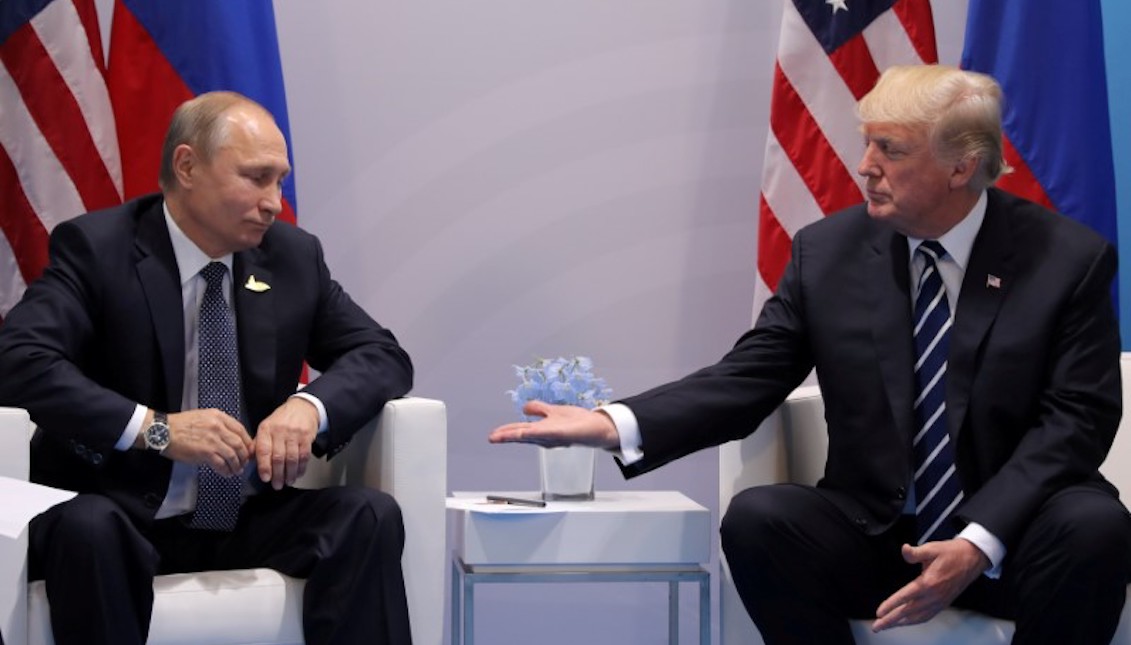
Trump-Putin summit: What should we expect?
The White House and the Kremlin have confirmed the preparations for the meeting between the two presidents just months before the midterm elections in the…
The public agenda of President Donald Trump has been transparent when it comes to clarifying his priorities.
Since beginning his presidency with business meetings with Saudi Arabia, Trump has withdrawn from the Paris Climate Agreement, the Nuclear Agreement with Iran, imposed commercial tariffs on his allies, and joined hands with Kim Jong-Un.
Meeting with Vladimir Putin is but the next logical step.
During a press conference in Moscow on Wednesday, U.S. National Security Adviser John Bolton said that "Trump had requested he do all he can to arrange the high-risk meeting," The Hill reported.
"There will be an announcement on that tomorrow, simultaneous in Washington and Moscow," Bolton added.
Although both leaders had already met informally during the G-20 summit in July 2017 in Germany, the timing of this official meeting on the eve of the mid-term elections has raised some suspicions.
"The Trump-Putin summit would be the first meeting of the two presidents not taking place on the sidelines of a broader international gathering," the Washington Post explained. "It would garner intense scrutiny because of special counsel Robert S. Mueller III’s investigation into possible collusion between Moscow and Trump's 2016 presidential campaign. And it could overshadow the July summit meeting of the North Atlantic Treaty Organization, raising fresh questions about Trump's commitment to America’s traditional alliances."
However, Bolton, who before joining the Trump administration was an open critic of Moscow, said any suggestion in this regard would be illogical.
"People have said or implied over time that a meeting between President Trump and President Putin would somehow prove some nexus between the Trump campaign and the Kremlin, which is complete nonsense," the adviser said, according to USA Today.
RELATED CONTENT
On the other hand, specialists in diplomatic relations fear that President Trump "is likely to make promises and concessions to a Russian autocrat he seems eager to please," explained Politico.
"Putin comes extremely well prepared for these meetings," said Michael McFaul, a critic of Trump who served as the United States ambassador to Russia during President Barack Obama's second term. "He knows what he's looking to achieve. He does the psychological work ahead of time to think about the strengths and weaknesses of the people he's talking to."
Likewise, William Pomeranz, an expert in Russia of the Woodrow Wilson International Center for Scholars, assured the media that "what Putin brings is the ability to articulate his demands, a better knowledge of what he wants from these discussions and a track record of knowing how to manipulate people to get what he wants."
In conversation with a president who ignores the recommendations of his staff, acts by impulsiveness, and has been known for his deliberate ignorance of international diplomacy, Putin has everything to win.
But President Trump will not appear at this meeting as a businessman but as a sympathizer.
Since the beginning of his campaign, the U.S. president has declared his intentions to improve relations with Moscow, insisting even on its reintegration into the international community, as he said before embarking on the G7 convention in Canada earlier this month.
This intimate approach of both leaders will be the perfect scenario for Putin to demonstrate his political superiority over his historic enemy, ending the United States' "unilateral domination" over world affairs.
"There are already questions about Trump's commitment to NATO," said Mark Simakovsky, a former Defense Department official to the Business Insider. "The fact that Trump is likely to meet with Putin so close to the NATO summit seems like a purposeful step to signal his displeasure with the alliance while showcasing himself as a kingmaker, someone who makes big deals with big leaders, irrespective of the interests of our closest allies."











LEAVE A COMMENT: